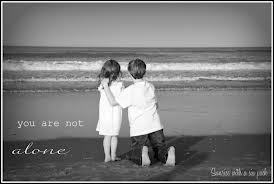What Does it Feel Like to Live With Bipolar Illness?

Writing Heals
I’ve started this Q&A about bipolar disorder as a way to engage those with bipolar illness and their families in telling their stories. Perhaps by reading others stories, you won’t feel so alone. And writing about your personal exoeriences helps other and it can help you because writing heals. Please join our conversation.
To get you started–A question for those who have bipolar illness, one for families, and one for spouses and significant others. Feel free to go wherever your writing takes you:
Q: What does it feel like to have bipolar disorder? Have you found any strategies that make life easier?
Q: What is it like to have a family member with bipolar disorder? Have you found strategies to cope?
Q: What is it like to have a spouse or partner with bipolar disorder? What difficulties have you had in maintaining the relationship ?
Here’s my story as a mom:

Difficult but Heartfelt
“My son was 20 and beginning his junior year in college when he had his first episode. After that Max had an episode every year. He disappeared among the big city homeless, ended up handcuffed in the back of police cruisers, and came within inches of jumping from a shattered eighth floor window in Philadelphia. By the time he was twenty-six, he’d earned a dozen commitments to psychiatric institutions.
For me the homeless pushing grocery carts filled with their meager belongings became encounters too close to home. I struggled to come to terms with my changing role as parent and confidant. Stymied, bullied, blindsided by doctors, hospitals, and the law, I chased Max’s collapsing dreams and I was afraid he wouldn’t live through the next crisis.
I’ve spent hundreds of hours in psychotic hospitals. Over the years I’ve learned how horribly inadequate our mental health care “system” is. Finding good treatment for Max was more than just difficult—it was often impossible. Patients and families are dictated to, appointments with doctors are hard to come by, those in crisis end up in emergency rooms where they wait for help that never comes, outpatient care is practically non-existent, and too many psych units are simply holding tanks, places where little treatment occurs except for the piling on of medication. Already severely traumatized from his illness, Max has been restrained, isolated, and physically abused by staff that are undertrained or just don’t care. Needless to say, it broke my heart.
After one lengthy hospitalization, l was told that Max would never recover. “Max can’t live on his own,” the doctor said. “You better plan for the future. You’d better. You’d better. You’d better.” The message—you’d better give up hope. I had to reject the hopelessness that doctor tried to hand me because the alternative was simply too devastating. I was angrier than I’d ever been, angry at a mental health care system that had failed us so completely and at that doctor.
To cope I finally found NAMI (National Alliance on Mental Illness), where got educated, found enormous support from other parents, and became an advocate for my son and others. Other coping mechanisms included yoga, meditation, and time with grandchildren. In these sweet beings there is nothing, if not hope.
Most important, I’ve learned that people with mental illness can and do succeed. They live fulfilled lives, working in jobs, volunteering, and developing significant relationships. They engage in the process of recovery, knowing that recovery doesn’t mean cure. How do they do it? They believe in themselves. They persevere through hardship. They risk failure. They define their own life goals and design their unique paths based on their own limitations, needs, strengths, preferences, and backgrounds. They are supported by allies—family, friends, peers, who believe in their potential to be their best, who stand by them, offering hope, and support.
As part of coping and healing, Max and I eventually wrote a book together about our journey. Reliving the years of trauma was painful for both of us, but ultimately it helped us make sense of all the chaos. And something about the writing makes the pain less intense. It was a risky venture, especially for Max, who has brought his illness into the light for everyone to see. But it has felt like the ultimate step in recovery for both of us.” —Kathy
Thank you to these two friends for writing about their bipolar illnesses:
“When I was diagnosed with bipolar disorder around six years ago, I had long been aware that my brain was somehow oriented in a different direction than anyone else’s brain I knew of. Receiving a diagnosis only put a name on an experience I was already familiar with. Six years later, I have no distinct conclusions, no cures, no answers about bipolar disorder. I can only describe my  personal experience, and I do so in an attempt to better understand how to function despite my struggles. I often regret who I was and what I did while in manic states, or the time that got wasted during months of depression. I’m working on my relationship to my memories. I don’t know how to treat them, interact with them, or understand them. I think I need to accept the past as something that I experienced, and that’s it. But I want to turn and run away from my memories, I cringe at the thought of them. So instead, I try to focus on where I am now – A stable, healthy place that took a great deal of hard work to reach. Of course, this does not mean I no longer struggle. My medication helps me manage, but there are always weeks when it is impossible to get out of bed. I engage in a constant battle with anxiety, which I can only describe as being perpetually stuck in the moment between tripping over something and landing on the pavement. Severe anxiety feels like being frozen in this moment, forever trying to hold myself in the position that will hurt the least when I inevitably hit the ground. In my experience, bipolar disorder means knowing how and when to ask the people who love you for help. It means accepting the mistakes you made, the delusions you had, and the damage you caused. It requires a great deal of self-awareness, patience, and forgiveness. These are not things I’ve mastered yet, but as time goes on, I gain greater insight into how bipolar has controlled me, and what I need to do in order to regain that control. Mental illness is not charming, “quirky”, or temporary. It is a huge weight that I anticipate carrying for the rest of my life. The trick is not figuring out how to cast off this weight, but rather to acknowledge its presence, get a firm grip around it, and carry on.”–Anonymous
personal experience, and I do so in an attempt to better understand how to function despite my struggles. I often regret who I was and what I did while in manic states, or the time that got wasted during months of depression. I’m working on my relationship to my memories. I don’t know how to treat them, interact with them, or understand them. I think I need to accept the past as something that I experienced, and that’s it. But I want to turn and run away from my memories, I cringe at the thought of them. So instead, I try to focus on where I am now – A stable, healthy place that took a great deal of hard work to reach. Of course, this does not mean I no longer struggle. My medication helps me manage, but there are always weeks when it is impossible to get out of bed. I engage in a constant battle with anxiety, which I can only describe as being perpetually stuck in the moment between tripping over something and landing on the pavement. Severe anxiety feels like being frozen in this moment, forever trying to hold myself in the position that will hurt the least when I inevitably hit the ground. In my experience, bipolar disorder means knowing how and when to ask the people who love you for help. It means accepting the mistakes you made, the delusions you had, and the damage you caused. It requires a great deal of self-awareness, patience, and forgiveness. These are not things I’ve mastered yet, but as time goes on, I gain greater insight into how bipolar has controlled me, and what I need to do in order to regain that control. Mental illness is not charming, “quirky”, or temporary. It is a huge weight that I anticipate carrying for the rest of my life. The trick is not figuring out how to cast off this weight, but rather to acknowledge its presence, get a firm grip around it, and carry on.”–Anonymous

You Are Not Alone
“It’s a struggle because everything a doctor can do for you feels like guesswork and the medication can be almost as bad as the disorder itself. It’s pretty alienating sometimes and it can be really extremely hard to have any real objectivity about the world around you are always struggling internally. I just finally have found a medication combination that actually does anything and even now its hard work all the time. It also can be really revealing in terms of figuring out the nature of your interpersonal relationships. Fair weather friends will more than likely leave and you end up left with the people who are really capable of understanding you and being supportive in a real and ongoing way.
I do a lot of breathing exercises because I have sort of co-morbid anxiety. Really the most important thing is to push myself to do the things that feel impossible. Sometimes that’s just like going out with friends when it feels completely counterintuitive. Honestly I genuinely believe in faking it until you make it. As long as you acknowledge your feelings it’s important to try to keep a semblance of normality. It’s also important to be honest with the people around you. I see a psychiatrist and a therapist once a week. I also have scheduled hours for sleep and for exercise because having a schedule makes a huge difference.” –Anonymous
I hope you will join us in sharing your story. With every best wishfor healing and recovery.



